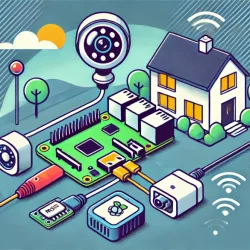Top 5 Social Media Tactics to Deter Burglars
Burglary of the home invasion type is not unheard of; the practice has been around since people began to have homes. But these days there is also a slightly more frightening form of robbery that is bolstered by the anonymity of virtual space. And identity theft is probably even more common, and potentially more harmful, than physical burglary. That said, you’re probably not keen to experience either of these invasions of your privacy, complete with theft of your money and/or valuables. So why, oh why, would you broadcast sensitive information where it can be collected by people who will use it to steal from you? Social media may be the latest and greatest way to connect with people, but if you’re not careful, you’re going to get a lot more intimate with some strangers than you probably want to – they could end up wearing your coat, watching your TV, spending on your credit, and even trying on your name. So if you want to protect yourself and deter these would be burglars, virtual or otherwise, here are some social media guidelines that should help to keep you safe.
- Privacy settings. You may have noticed that companies like Google, Apple, and Facebook are getting slammed for their policies that make it hard for you to keep your private information out of the public eye, and many have come under government attack and been forced to at least offer users the option for increased privacy settings, even if a state of privacy is not their account default. The result is that you have the ability to protect yourself when you utilize social media. Whether you’re creating a new profile or you’ve been Facebooking and tweeting for a couple of years now, it’s never too late to increase security and hide your information from the general public, potentially reducing your odds of both virtual and real-world burglary.
- Don’t accept contacts you don’t know. Your privacy is only as secure as your ability to steer clear of those who would cause you harm. When people ask to be your online friend, it can be a real boost for the ego. But avoiding the temptation to accept every friend request you receive is one of the best ways to keep yourself safe in the online arena. So if you don’t recognize the person trying to friend you, just say no.
- Don’t volunteer personal information. When you’re trying to carry on real-world relationships in the online arena, the tendency to reveal personal information is pretty common. And yet, you never know what a predator can use to hack you or find out where you are. Obviously you’re not giving up your social security or bank account numbers, but suppose you discuss online stores you shop at frequently; if they don’t offer a secure connection or data encryption, it could be easy enough for a skilled hacker to swoop in and steal your personal information. Or what if you post pictures taken in front of your home? Someone could figure out where you live, wait for you to start posting vacation pics (indicating your absence), and then break in and rob you. Don’t scoff – you wouldn’t be the first.
- Don’t advertise your plans. Instead of letting everyone on your social networks know that you’re going to Maui for two weeks, keep the information to yourself until you return home. You won’t be nearly as much of a target for burglars in the meantime.
- Smart home systems. Whether you install Vivint in your NYC loft or ADT in Los Angeles California, you should know that these systems come with the potential for bells and whistles that could help you to protect your home from burglary, even when you’re away. Thanks to systems that offer remote operation, you may be able to control your alarm and other household electronics like the thermostat, lighting, and even your TV via your smartphone or tablet to make it look like you’re home when you’re not. Of course, this will be useless if you let all your Facebook friends and Twitter followers know you’re on vacation. But it can be part of an overall strategy that helps to keep your home safe from intrusion and theft.
More to Read:
Previous Posts:




